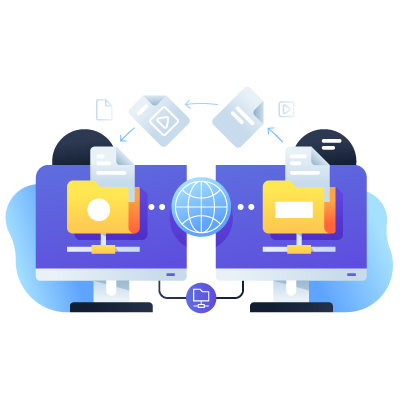Some of the Best Practices for Internal File Sharing

Ensuring that your organization’s file-sharing policies and procedures are built to enhance security can significantly impact collaboration, distinguishing between efficient, streamlined processes and time-purging, wasteful practices. Navigating this terrain can be a challenge. Let’s explore several best practices your organization can adopt to optimize file-sharing.
Focus on Data Protection
Most file sharing occurs during work hours, making robust data protection standards essential. Rather than relying on lax measures, prioritize data protection by integrating solutions that enable secure file exchange within email, thereby avoiding the need for third-party platforms.
Business-Class > Consumer-Grade
Consumer-grade file-sharing services often pose security vulnerabilities and compliance issues. Choose a solution that offers comprehensive security controls, such as access management, expiration settings, and e-discovery features, to ensure regulatory compliance and data protection.
Embrace Cloud-Hosted Platforms
Regardless of your organizational requirements, using a cloud-based file-sharing solution offers significant advantages, such as rapid deployment, high-performance and fully managed infrastructure, and, most of the time, comprehensive backups.
Consider Integrations
Instead of standalone file-sharing systems, choosing more integrated systems that incorporate essential functionalities like email security and other services is prudent. Streamlining your software ecosystem without compromising security will enhance efficiency and improve file security.
Provide Comprehensive Training
Effective file-sharing systems require thorough training to take full advantage of. Educate your staff on data handling best practices, the risks associated with improper data management, and the specific procedures your company chooses when you are using file-sharing platforms.
Balance Security and Usability
While maintaining robust data security is crucial, ensuring ease of use is equally important, especially for dispersed workforces. Choose business-class solutions that offer consumer-grade usability to minimize the risk of compromised data security due to user error.
We Can Help!
At White Mountain IT Services, we specialize in optimizing data flow, enhancing file security, and facilitating efficient file sharing for organizations. Contact us today at (603) 889-0800 to talk to one of our knowledgeable consultants about your organization’s IT.

